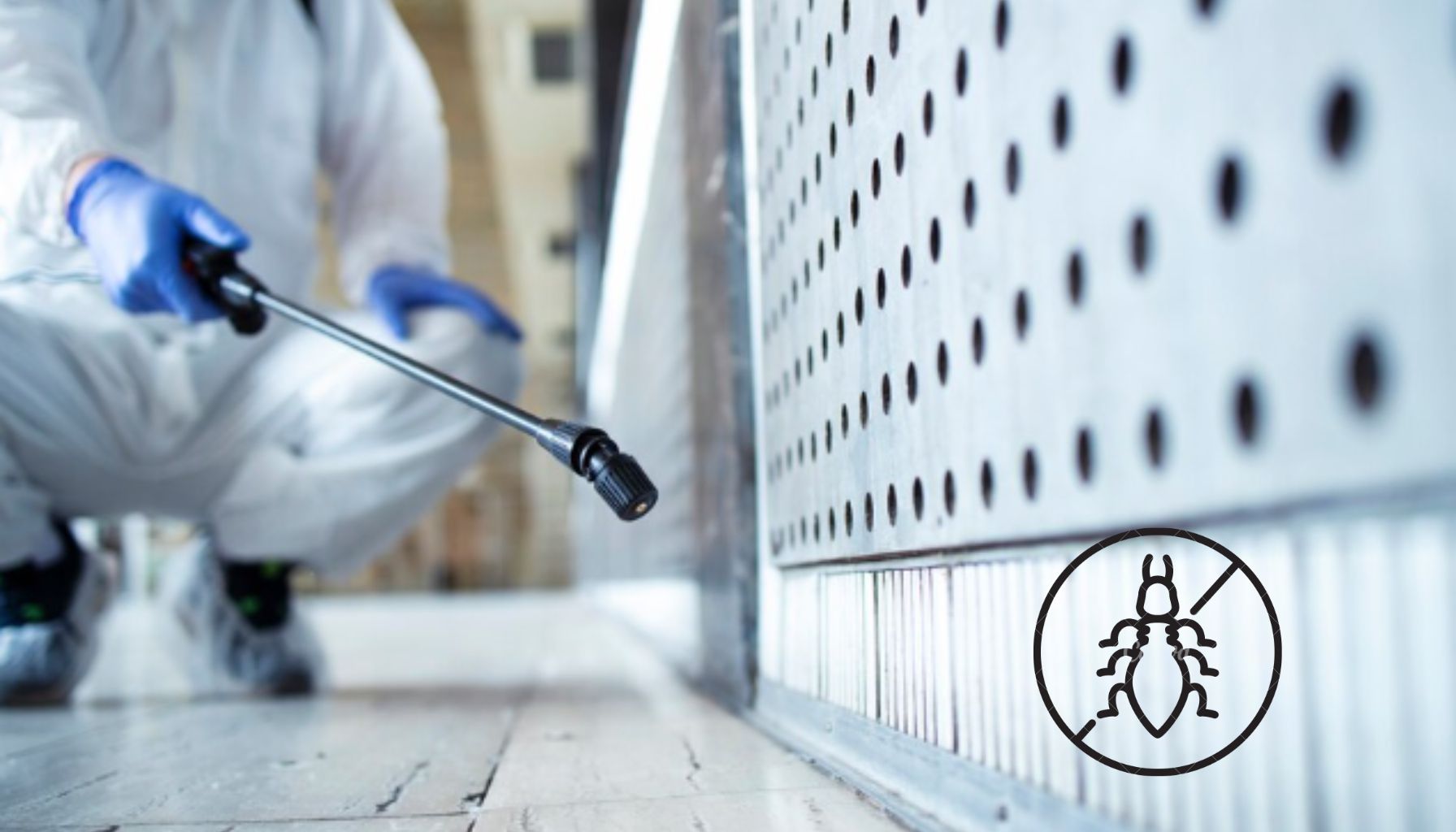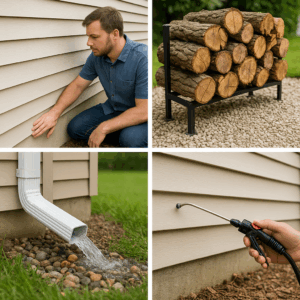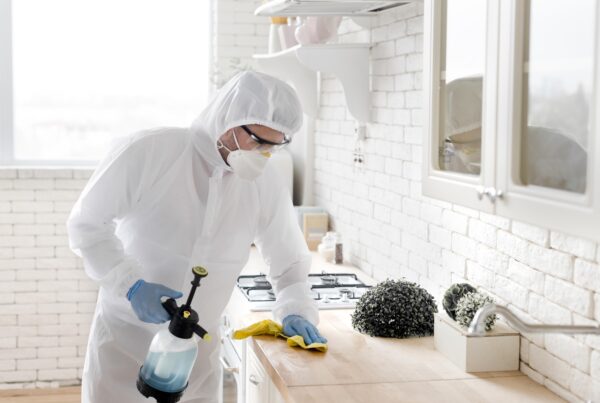Termites are tiny pests that can cause big problems. While they often go unnoticed, they’re capable of silently destroying wooden structures in your home costing homeowners thousands in repairs each year. The good news? There are smart steps you can take today to prevent termites and keep your home safe.
Below, we’ll walk you through practical termite prevention tips, what attracts termites in the first place, and why professional termite control is often the safest route.
Why Termite Prevention Should Be a Priority
Ignoring termite prevention can lead to expensive damage and structural issues. These pests thrive in hidden areas, walls, floors, and even ceilings slowly eating away at wood and weakening your home over time.
Here’s why acting early matters:
- Termite damage is rarely covered by homeowners insurance.
- Colonies can number in the thousands or more.
- Signs of infestation often appear only after serious damage is done.
What Attracts Termites to Your Home?
Termites are drawn to specific conditions that make your home a perfect feeding ground. By understanding what they’re after, you can make changes that reduce your risk.
Common termite attractants include:
- Moisture: Leaky pipes, damp basements, and poor drainage.
- Wood-to-soil contact: Deck posts or siding touching the ground.
- Clutter: Wood piles, mulch, and even cardboard stored near the home.
- Cracks in foundation or siding: Entry points for subterranean termites.
7 Smart Strategies to Prevent Termites
1. Keep Moisture Under Control: Moisture is a major termite magnet. Check for leaks in plumbing, HVAC systems, or roofs—and repair them immediately. Install a dehumidifier in damp crawl spaces or basements.
2. Store Wood Properly: Firewood, scrap lumber, and even cardboard should be stored at least 20 feet from your home and off the ground.
3. Maintain Landscaping: Keep shrubs trimmed and avoid over-mulching. Mulch should be kept at least 12 inches from your foundation to avoid attracting subterranean termites.
4. Seal Cracks and Gaps: Check your home’s foundation and siding for cracks or gaps. Seal them with caulk or weather-resistant materials to block termite entry.
5. Schedule Regular Inspections: Professional termite inspections can catch early signs of infestation before real damage occurs. A yearly check is typically recommended.
6. Use Physical Barriers in Construction: If you’re building or remodeling, termite barriers like stainless steel mesh or sand can be installed to physically block termites.
7. Invest in Professional Termite Control:DIY methods can help with prevention, but only a licensed termite pest control provider can properly treat infestations and protect your home long-term.
Why Professional Termite Control Is the Best Defense
While preventative habits go a long way, professionals bring the tools and experience needed to detect and treat termites thoroughly.
Here’s what a pro can do:
- Identify termite species and activity zones.
- Apply targeted treatments (like soil barriers or bait systems).
- Offer long-term monitoring and warranties.
- Ensure compliance with local codes for real estate or insurance needs.
When it comes to protecting one of your biggest investments, expert support isn’t a luxury, it’s a necessity.
Know More: Termite Pest Control
Final Thoughts
Termites can cause major damage long before you even realize they’re there. Taking simple preventive steps like managing moisture, storing wood properly, and sealing entry points can go a long way. But if you’re serious about protecting your home, the most effective solution is partnering with a trusted termite control professional.
FAQs
Can termites come back after treatment?
Yes, termites can return if preventive measures aren’t maintained. That’s why regular inspections and treatment renewals are important.
Are there natural remedies to keep termites away?
Some natural options like orange oil and diatomaceous earth may help deter termites, but they are not reliable substitutes for professional treatment.
What’s the best time of year to check for termites?
Spring is peak swarming season for many termite species, making it an ideal time for inspections. However, prevention should be year-round.
How long does termite treatment last?
Most professional treatments last between 5 to 10 years, depending on the type and environmental factors. Regular monitoring is still recommended.
Is termite prevention necessary if I live in a brick home?
Yes. Even brick homes have wooden framing, flooring, and drywall—all vulnerable to termite damage.
Recent Posts / View All Posts




